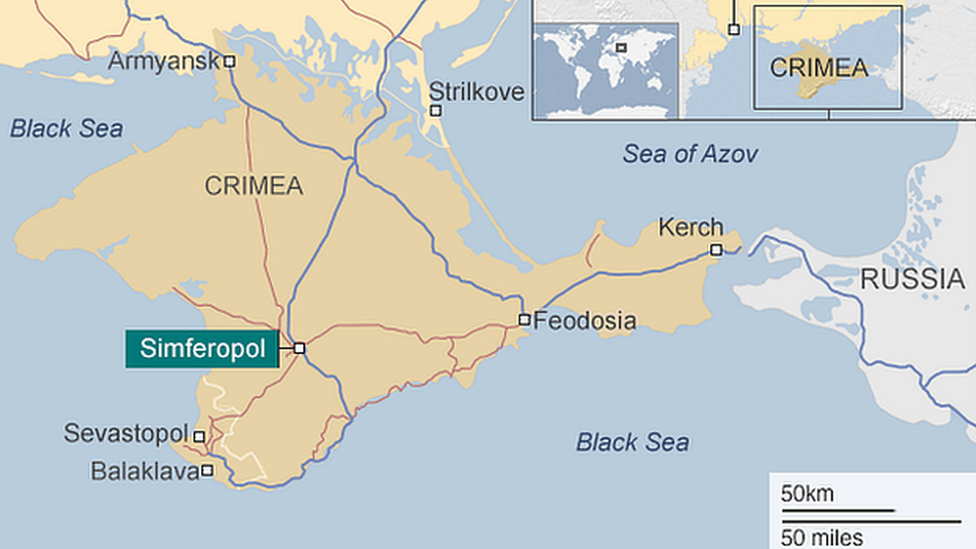Ukraine conflict: Putin ally to build bridge to Crimea
- Published
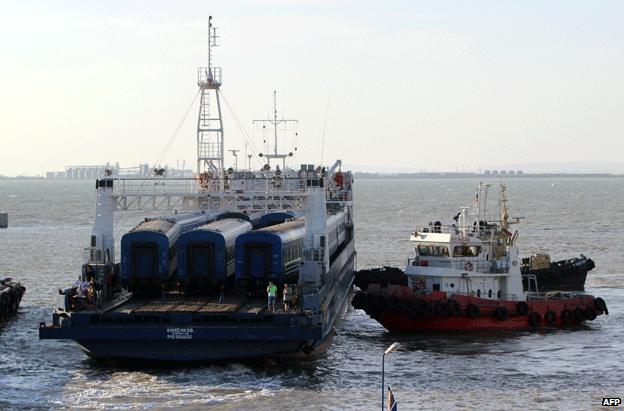
Ferries like this one carrying railway carriages connect Russia to Crimea
A Russian contract for building a bridge to Crimea has gone to a company majority-owned by a friend of Vladimir Putin who is under Western sanctions.
The $3bn (£2bn) contract was awarded to the SGM Group, owned by Arkady Rotenberg, a childhood friend and judo partner of the Russian president.
The bridge will join Russia directly to the peninsula it annexed from Ukraine in March after a disputed referendum.
It will be pipeline specialist SGM's first bridge, Reuters news agency says.
It is still unclear where on the Kerch Strait the structure will be erected, meaning the span could be anything from 4km to 15km (2.5 to 9 miles).
Announcing the contract in a statement, external, Russia's transport ministry said the bridge should be finished by the end of 2018.
Currently, Crimea is connected to Russia by sea and by air, while land routes through Ukraine have been affected by the conflict in its eastern provinces.
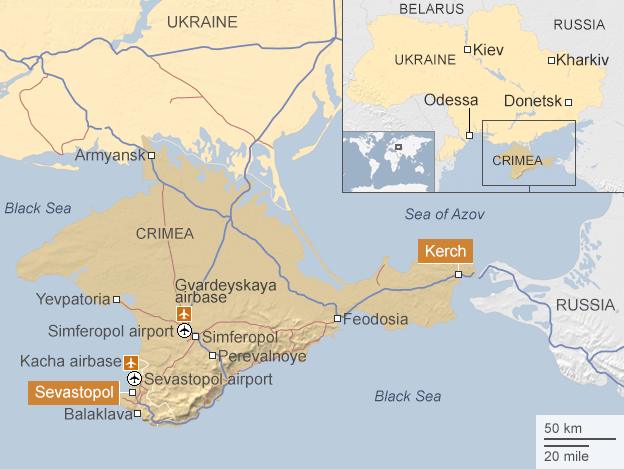
Rotenberg's legacy?
The annexation of the peninsula sparked sanctions on Russia by the EU, US and their allies and Mr Rotenberg was one of the first Russian businessmen to be put under Western visa bans and asset freezes.
In an interview with Russian daily Kommersant, Arkady Rotenberg welcomed the contract but said it would probably be his last project.
"At 63 I think more about what should be left behind, what will be the results of life," he said.
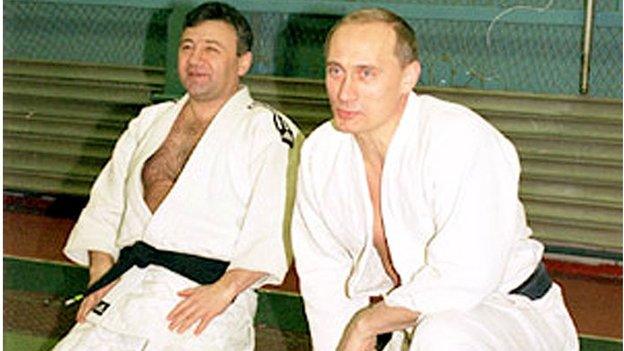
Arkady Rotenberg (left) with Vladimir Putin practising judo
"Moreover, I long planned to gradually stop running businesses... But the bridge project came along and I decided it was very important to carry it out. It is important for the country."
According to the US Treasury, Arkady Rotenberg and his brother Boris provided "support to Putin's pet projects" by receiving and executing approximately $7bn (£4.7bn) of contracts for the Sochi Olympic Games and state-controlled energy giant Gazprom, through which their personal wealth increased by $2.5bn (£1.6bn).
The brothers deny getting help from the Russian leader for their businesses.
- Published29 January 2015
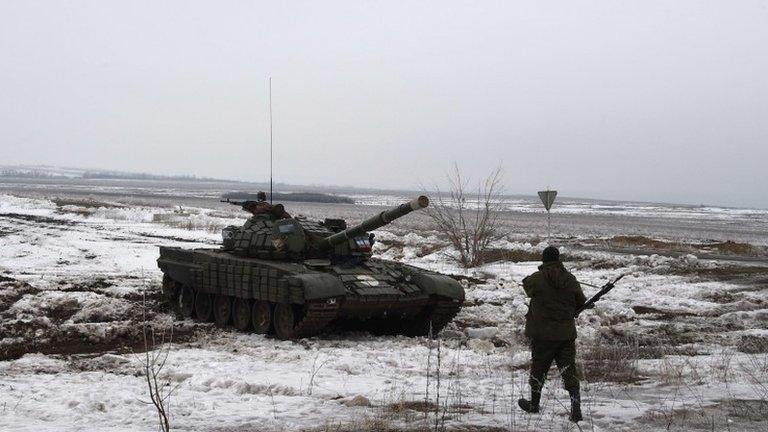
- Published19 December 2014
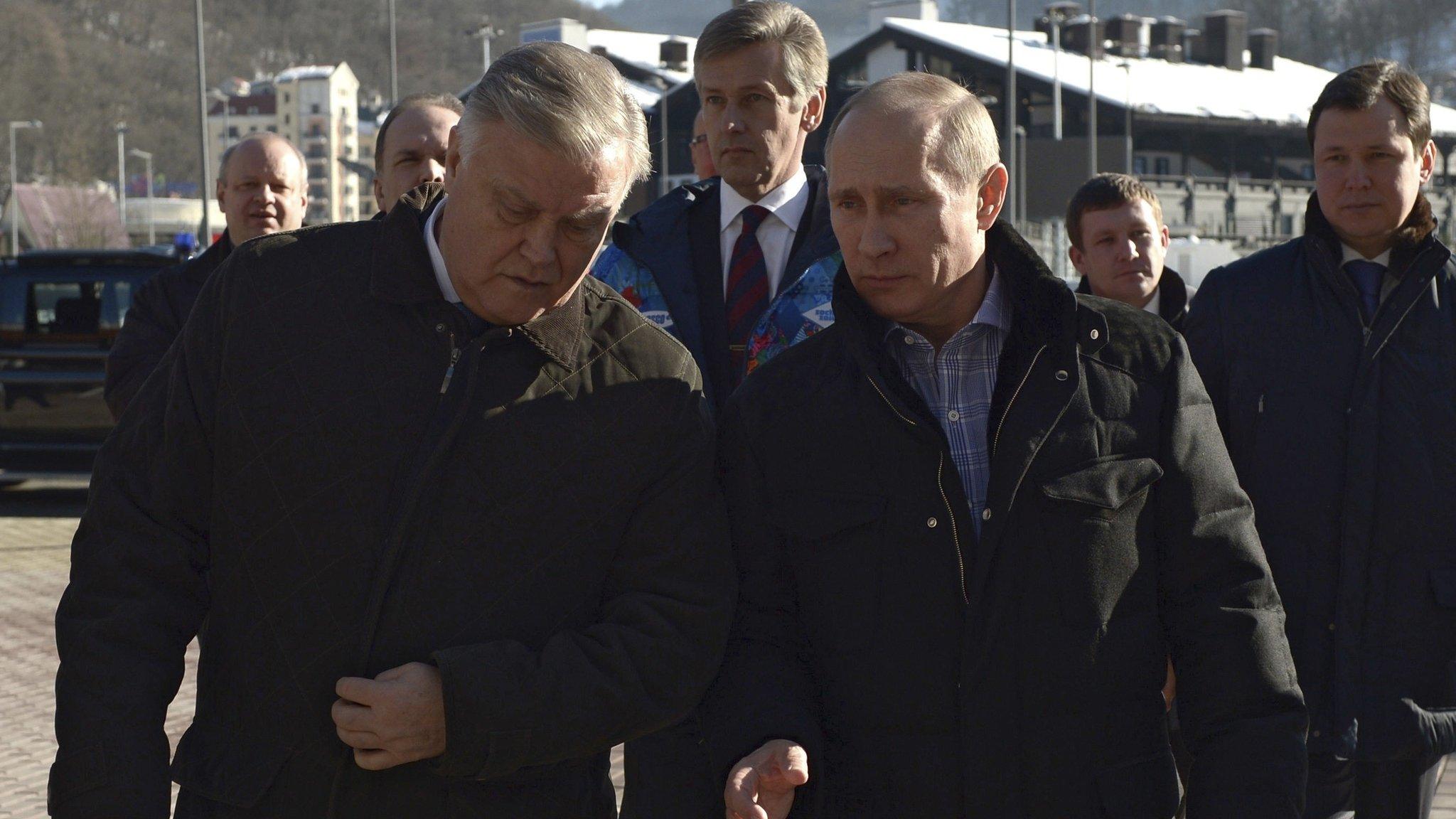
- Published25 March 2014
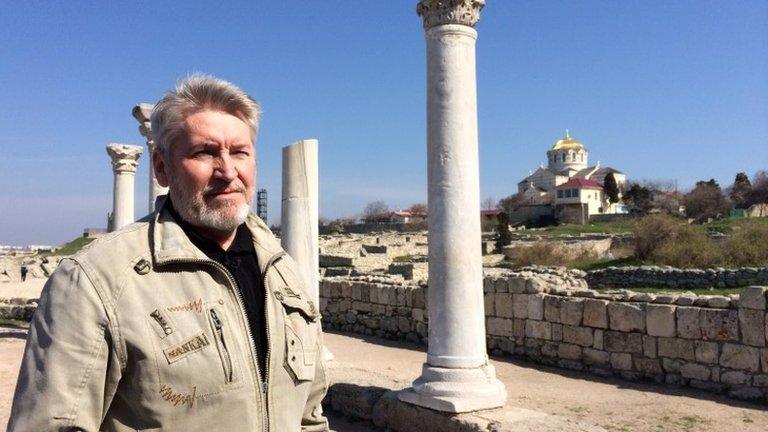
- Published16 March 2014
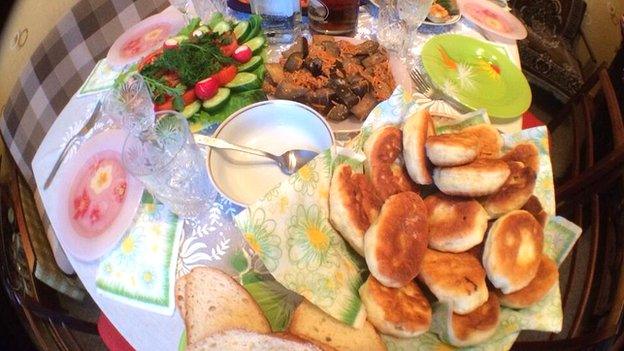
- Published31 July 2023
